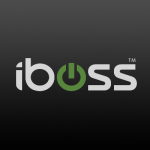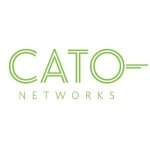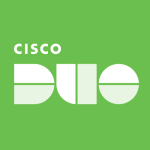What is our primary use case?
We are a Cisco premier integrator, and I've worked for Prosperity for approximately seven months now. We just set up a new networking team predominantly servicing clients within the financial services industry.
We offer various products within the Cisco Secure product line, for example, Cisco Secure Firewall, AnyConnect, and Umbrella. As a Cisco partner, we predominantly deploy Cisco equipment, be it LAN switching or routers. Deploying Cisco Secure products makes sense because then we have one vendor in the network.
How has it helped my organization?
When we're deploying Cisco Umbrella, we're predominantly utilizing the DNS Essentials or the DNS Advantage license. We use it as a first layer of defense on the network because everything relies on DNS these days, so if you can capture that traffic and analyze it or analyze those DNS requests, you can very quickly start filtering out things like Command-and-Control and whether there's malware on the environments or shadow IT, for example. So, it can capture and categorize the apps that people use, and if you were to block something, you can very easily block it.
As a Cisco partner, the value we bring to our customers is our years of experience, and our customers can rely on us. We've got a saying in our company that if we look after our clients, we look after our colleagues, and we look after our customers, then we'll all prosper; hence the name Prosperity 24/7. That's our sort of motto, but it's very true. Our customers can trust us. We've got the experience. We've got the links to Cisco. We do all the training, so customers don't have to worry. It's about wrapping the customer up in a blanket and going, "Everything's going to be okay. We're here."
The benefit we get from our Cisco partnership is credibility within the marketplace because everybody has heard of Cisco, and it's probably one of the most deployed network manufacturers in the world involved in so many verticals. There's always a product there. I've been looking at so many products this week at Cisco Live, for example, that anything you can think of is there. There's always new innovation. It's an innovative company.
What is most valuable?
The feature that we find most valuable is to be able to filter out those web requests that you don't want. In a corporate environment, it can be damaging. It can be damaging to organizations as well. You don't want people going to certain sites. Also, the malware side of things and the Command-and-Control side of things are valuable because you can have serious reputational damage to your organization if there's malware in your environment. To be able to block that at its source is very important.
Umbrella is a constantly evolving product set in terms of what they had maybe four years ago compared to now. The number of features they're developing and facilities within that cloud platform are amazing. Things like data loss prevention (DLP) have been released in the last couple of years. It probably has remote browser isolation (RBI) as well, but I'll have to check that one. So, it's a constantly evolving product set. Our clients might start off on a lower tier of the Umbrella, but over time, they'll go, "Actually I want that feature." And then they'll go from DNS Essentials to DNS Advantage, and then they might start looking at Secure Internet Gateway (SIG), for example, which is just the secure web gateway (SWG). So, there's something for everybody, and as a layer of defense in your network, it's a great product.
What needs improvement?
With any Cisco product, it's the licensing side of things that needs improvement. Licensing changes and Cisco typically doesn't make it easy for us, but it does evolve. What's good now is that predominantly across the different product sectors within Cisco, you start off with DNS Essentials, Advantage, and even the Catalyst switches. That's now ubiquitous across the Cisco line. They've got to keep it simple on the licensing side so that when I go and talk to clients, I can say, "Right, here you go. With this license, you get these features, but you can always scale up." Once the customers experience Cisco Umbrella, then typically, they start thinking, "What else could I be doing?" You may start off with the DNS Essentials, but then you might move to SWG eventually.
What do I think about the stability of the solution?
Umbrella's availability is second to none. I remember attending Cisco Live in Barcelona where I went to one of the sessions, and they said that they've had a hundred percent uptime since forever basically, so I don't think they ever had an outage. They've got two DNS servers. They use Anycast, so it's available around the world. It will speed up your web browsing because you'll go to the closest data center. Umbrella pairs with the service providers, so it'll speed up your general web traffic as well.
What do I think about the scalability of the solution?
In our customers' environments, in terms of scalability, absolutely, it's a very simple product to deploy. It's cloud-based, so we don't have to worry about deploying resources locally. Networks rely on DNS anyway. The whole Microsoft stack, whether you open a web browser or use Teams, relies on DNS. So, it's the first step in any web transaction.
How are customer service and support?
I like working with Cisco products because I get excellent support. If it's four o'clock in the morning, I'm in a data center, and something has stopped working, I know I can just reach out to TAC, raise a TAC case, and get help. That's a comfort blanket that surrounds all of us Cisco engineers. We know we can call somebody, and we know we can get through to somebody who will have the answers for us.
I would give Cisco support a solid eight or nine. It's probably difficult to give a 10 because sometimes it depends on who you get as well, but with Cisco TAC, you can always escalate cases as well. So, there's always somebody within Cisco TAC who can help you.
How would you rate customer service and support?
How was the initial setup?
In the typical deployment model, we integrate it with, for example, the Meraki product line for using Cisco Umbrella directly within the Meraki dashboard. So, you can link it to an API. That's a nice integration. You're not having separate Meraki access points or Meraki MX. You can bring it all together in one place, so you've got a single dashboard. Typically, we've done that. In the bigger organizations, we have done deployments of the virtual appliances because essentially, you want to be able to identify individual users at that point. By using the VAs, you should be able to identify users on the network, and then you can deploy policies based on those user groups.
Cisco Umbrella can be deployed in minutes. In its simplest form, all you need to do is point at the Cisco Umbrella DNS servers, and that's it. It can be literally deployed in minutes. If you want to go to a different use case, for example, where you've got to deploy VAs, that's a bit more difficult, but there's something for everybody. It can be as simple or as complex as your environment requires.
Which other solutions did I evaluate?
I've always worked with Cisco. I've been working with Cisco products for the last 20 years. We do have other products that we can sell for a lower price point, for example, but typically, I like using Cisco products.
What other advice do I have?
To any customers who want to evaluate Umbrella, the first thing I would recommend looking at would be the product sheets within Cisco. Understand the technology, understand the features that are available, and then decide what level of Umbrella or what licensing level you require to meet your business requirements. If it's just protecting some guest WiFis, for example, then it'll be a very simple deployment. If you've got Meraki kits, you can easily link those two pieces together.
Talos receives so much traffic. I did one of the sessions yesterday with the guys from Talos, and the amount of web traffic that comes into Talos for them to analyze is huge. So, as a repository of what's going on and a view of what's going on the Internet with this new malware, they're very quickly going to be able to react to that. Even with just the behavioral type analysis in terms of what constitutes bad behavior on a network, they can very quickly analyze and deploy a new solution. They update things like Umbrella, and as a central repository, it feeds into Talos, and then Talos can inform the rest of the security community about what's going on and what things you might need to block, so Talos overall has a positive effect for our clients. For them to do it themselves would be impossible. You need somebody on the Internet, and Talos provide that service. It's about control and visibility, and those certainly are the features that Talos can bring to the table.
I'd rate Umbrella a solid nine out of ten. It's probably difficult to get any product in a 10, but they are always constantly developing it. So, if you come back in a year's time, there'll always be new features than what's available today.
Disclosure: My company has a business relationship with this vendor other than being a customer. Reseller


















